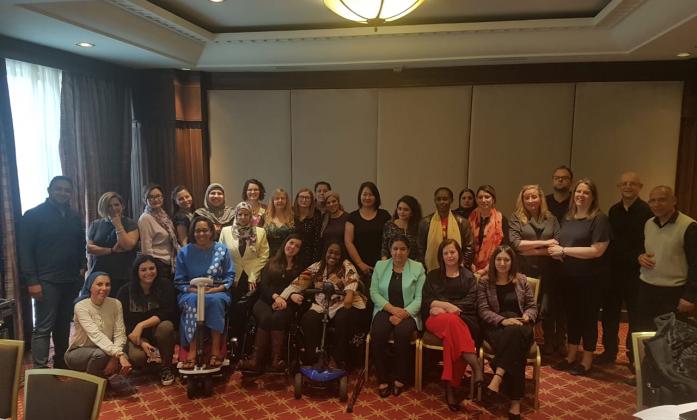From 21-23 April 2019, UN Women Offices of Arab States partnered with IDA and its regional member, the Arab Organisation of Persons with Disabilities to pilot the first UN Women Staff Disability and Gender Inclusivity Training. Hosted by IDA member, Arab Organisation of Persons with Disabilities (AOPD), regional and global women with disability experts came together with UN Women Staff. The UN Women staff representatives came from a variety of sectors, including human resources, operations and security, policy and programming. In addition, representatives came from the regional office based in Cairo as well as the county offices of Palestine, Jordan, Morocco, Egypt, and Lebanon.

The programme was developed through the results of a survey disseminated to staff in UN Women country offices across the region. The responses, which were collected from the UN Women staff from a diversity of offices, highlighted that there is limited disability inclusive programming in the country and regional offices, and when there is disability-focused programming it addresses rehabilitation and the distribution of mobility equipment.
Many staff members at the same time noted that the integration of disability in the country team strategic frameworks has started. However, there is a lack of technical capacity to fully realize disability inclusion as it is highlighted in their strategies. In order to respond to the gaps indicated by the UN Women staff and the increased enthusiasm to ensure inclusivity, the pilot disability and gender inclusivity training was launched.
The training brought together women leaders with disabilities from grassroots communities to global leaders, to share their experience in creating a disability and gender inclusivity at the national and regional levels.

During the interactive discussions, participants and speakers examined the multi-dimensional nature of gender inclusivity in regard to the principle of “Leave No One Behind”. Women leaders with disabilities from grassroots communities shared how inclusivity and intersectionality are experienced by women and girls with disabilities.
The objectives of the training were two-fold:
(A) Provide the Arab State Region’s personnel with tools on disability inclusivity for their operations and programme work to increase collective and individual capacity
(B) To provide an interactive knowledge exchange amongst Un Women offices and with external partners
A follow up on the outcomes of the training will be forthcoming!
